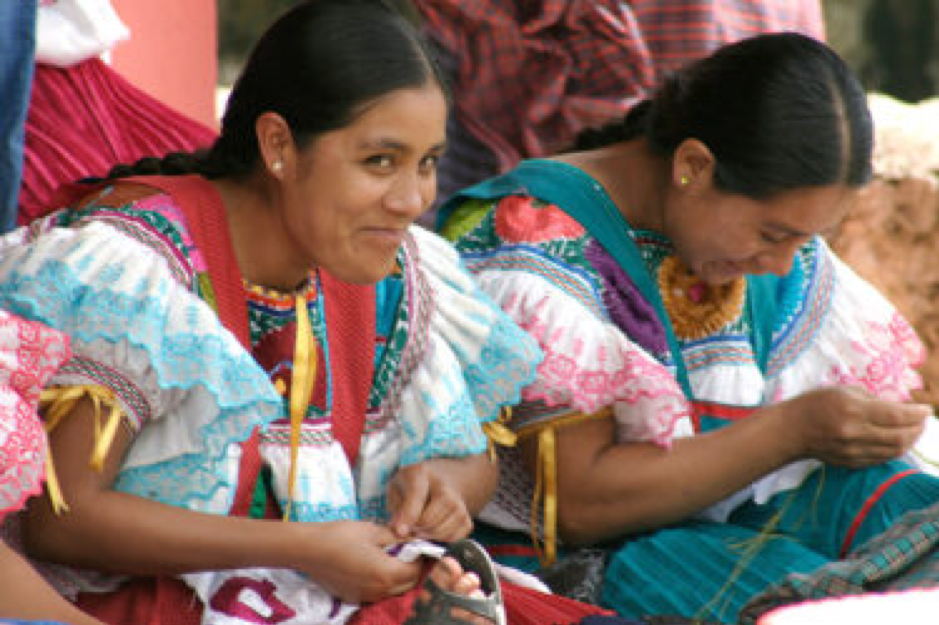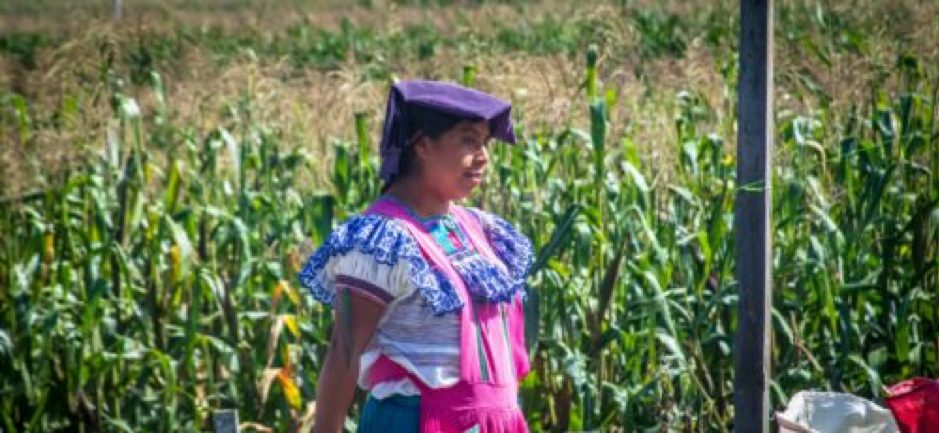
Constructed socially and culturally as the axis of their gender condition, motherhood has played a transcendental role in the lives of women, as it is associated with femininity.
Researchers Bárbara Carolina Linares Bravo, Austreberta Nazar Beutelspacher and Emma Zapata Martelo, have highlighted in a study the existence of non-maternity in indigenous contexts by exploring the conditions, motivations and circumstances of the women of Amatenango del Valle.
With the testimonies of 24 women, the researchers examined the link between non-maternity, being single, economic activities and the local gender system.
Similarly, they indicated that the approach to the context from a gender perspective revealed some of the elements that trace the possibilities, outline duties and distribute resources in the community, and this enabled them to observe non-maternity within the environment that builds and regulates it.
“I’m not going to want a husband because I’m seeing people leave each other, almost everyone here changes their wives. Why do I want that? It’s better for me to go to work. Sometimes they abandon women with their daughters. What if that happens to me too? Better not to”, said one of the 28-year-old interviewees.
The information collected by Linares Bravo, Nazar Beutelspacher and Zapata Martelo, was able to identify that, among the women interviewed, non-maternity and remaining single are related in different ways.
“There are many single women here, women don’t get married because they like to live free”, said a 38-year-old single woman.

The above may be: association, in which women do not want to be mothers or wives, or in a subordinate relationship, whereby the intention of not being wives prohibits being a mother.
In the first case, non-maternity responds to the will of the woman who is not a mother, reflecting the lack of flexible norms that, although allowing non-maternity, also regulate and structure it under the control of sexuality with celibacy as mandate.
“Well, I don’t know, I really don’t know, if God wanted it that way, he didn’t show me any boyfriend (…) well, I say that, if he wanted to, but since he didn’t show me, well, what would we do? There’s no way I’m going out to find him”, said a single 37-year-old woman.
While, in the second case, non-maternity as a consequence of not wanting to be a wife is sustained by the gender structure that regulates maternity and imposes it on conjugality.
“Yes there are guys, but they love others, they leave some and go with others, there are guys who look for you, but they are widowers, we have already seen how they are with their wives. It’s better not to, sometimes because they drink a lot. So, for them to leave you with children, not that, it’s better not to”, stated one of the interviewees, aged 37.
The other two types of non-maternity identified by the researchers were less frequent, but show the involuntary form of not being a wife, regardless of whether or not they wanted to be a mother.
In this subgroup are: women who desire to marry and be mothers, but have not been chosen as wives and as a consequence are not mothers.
Also, the women who do not want to be married or have sons and daughters, but who have not had the options of selection either, which distinguishes them from those who were “eligible” and said no.
“One came (a suitor), but as he had already left his wife, I didn’t want to”, indicated another of the interviewees, 46 years old.

Thus, the academics pointed out that the rejection of conjugal union, regardless of having been chosen or not, is predominant among the women from Amatenango del Valle interviewed, without sons and daughters, even if the cost of not being a wife is that of not being a mother.
In addition to this, the reasoning around deciding not to be wives was related to gender roles in the family and community, as well as unequal power relations within a couple, considering marriage and sometimes motherhood from that logic, as a risk area.
“I don’t want to, because I’m afraid of dying giving birth”, mentioned one of the 30-year-old women.
On the other hand, Linares Bravo, Nazar Beutelspacher and Zapata Martelo stressed that social inequalities and gender inequities were related to some of the reasons for not being a mother.
Likewise, social inequality and poverty are elements that put women’s health at risk, giving rise to the fear of dying while giving birth. The conception that some women had about childbirth as a dangerous was a motivation to prefer not to have sons and daughters.
Also, the researchers highlighted that the material conditions under which maternity and non-maternity are exercised in rural and urban areas in Mexico are different.
“The motivations documented up to now on non-maternity have come to coincide, under their own specificities, especially in relation to gender roles and couple relationships”, added Linares Bravo, Nazar Beutelspacher and Zapata Martelo.

In this sense, they indicated that the testimonies of the interviewed indigenous women evidenced the “bright and dark sides of non-maternity”. On the one hand, they show the agency to choose not to be mothers and wives, the rationalization of the arguments and motivations that reject maternity-conjugality related to one’s own well-being, and in general, the construction of referents of being a woman other than the traditional model of femininity.
On the other hand, the exercise of non-maternity denounces gender and class inequalities, visible in the distribution of resources and responsibilities in the different forms of violence exercised towards them, in the constriction of feminine identities and their duty to others, as well as in the adverse and discriminatory material and sanitary conditions under which indigenous maternity is exercised.
“This work shows an initial sociodemographic exploration carried out in Amatenango del Valle of indigenous non-maternity and non-conjugality. Although its objective was to make non-maternity practices visible, it also raises various issues that need to be explored from different disciplines”, the researchers specified.
Until now, you can see that the experience of indigenous non-maternity in Amatenango del Valle joins the voices that deny the discourses that insist on denying, minimizing or naturalizing gender inequalities, as well as those that carry reproductive stereotypes and infantilize indigenous women.
Original article by Yessica Morales in Spanish available at https://www.chiapasparalelo.com/noticias/chiapas/2022/12/ni-madre-ni-esposa-mujeres-indigenas-amatenango-del-valle-hacen-evidente-los-claros-oscuros-de-la-no-maternidad/
Translated by Schools for Chiapas.
Original research article: “Ni madre, ni esposa. Mujeres indígenas de Amatenango del Valle, Chiapas, México”. Available at https://estudiosdegenero.colmex.mx/index.php/eg/article/view/389/pdf
